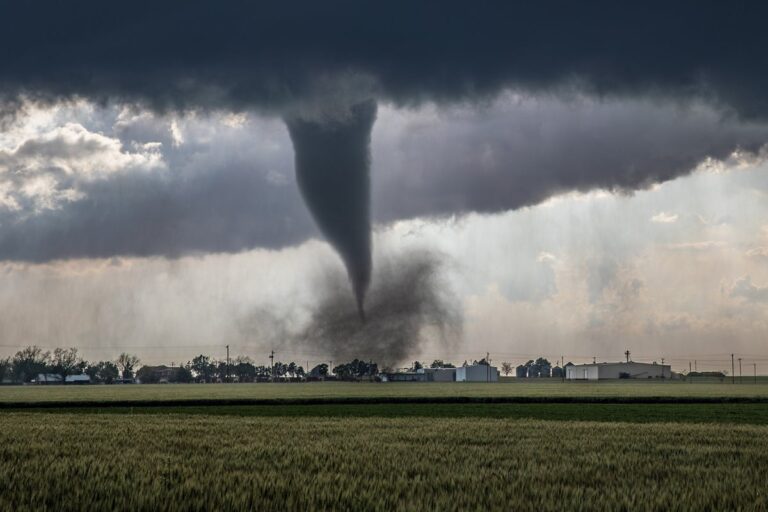Gone are the days when “Global warming isn’t real” was the primary claim of those most vocally opposed to climate action. As more people experience the firsthand effects of climate-change-juiced-up heat waves, hurricanes, wildfires, and crop failures, a new kind of climate denial has emerged. Rather than outright deny the problem, today, the most popular online influencers focus on other false or misleading messages like “Climate solutions don’t work,” “Climate change has some benefits,” and pollution reduction policies are “tools for governments to control people.”
These new forms of denial made up 70% of all such claims on YouTube in 2023, up from 35% in 2018, according to the Center for Countering Digital Hate.
A changing media diet
About one in five U.S. adults and 37% of adults under 30 say they regularly get news from social media influencers, according to Pew.
Of the 10 most popular online shows, eight have spread false or misleading information about climate change, a Yale Climate Connections analysis found. That analysis builds on recent work by Media Matters for America, a journalism watchdog organization, which found that right-leaning influencers now dominate digital media like podcasts and streams.
Much of the climate-related misinformation spread on these shows follows a revamped playbook of climate denial that focuses on denying the effectiveness of solutions and argues that climate change is beneficial. Influencers Jordan Peterson and Charlie Kirk also presented those concerned about climate change as adherents of a “pseudo-religion.”
For context, most people around the world, including the United States, are concerned about climate change. Our partners at the Yale Program on Climate Change Communication have found that the majority of Americans believe climate change is happening, it’s bad, and action should be taken.


Nevertheless, many online personalities, including Joe Rogan, Ben Shapiro, and Russell Brand, have platformed Danish political scientist, author, and climate denier Bjørn Lomborg. Climate scientists have pleaded with Lomborg to stop misrepresenting and misinterpreting their science.
Several show hosts also claim that climate change is a hoax designed to control and oppress. Kirk said, “Climate change is the wrapper around Marxism. You have Marxism at its core and you have climate change on the exterior. Climate change activism, environmentalism, pseudo-paganism – we call it a Trojan horse.”
‘New denial’ is gaining momentum
Like Kirk, some influencers lean into the idea that climate change is a conspiracy by governments to control their residents. That’s similar to conspiracy theorizing about efforts by governments to reduce illness and death from COVID-19, Tortoise Media, a British news website, noted recently. “Climate-sceptic narratives have merged with Covid-sceptic ones, and some of the personalities are the same,” the site reported.
The site’s analysis, titled “Hot Air,” looked at individual accounts on Twitter, TikTok, YouTube, and news or blog sites that frequently spread climate misinformation. The analysis showed increases in climate denial across platforms, with the “control” narrative gaining steam.
What “Hot Air” found
- Climate skeptic posts grew by 43% on YouTube from 2021 to 2024.
- Climate skeptic posts grew by 82% on X (Twitter) from 2021 to 2024.
- Claims that climate change is an instrument of control now represent about 36% of climate-skeptic content on YouTube and 40% of climate-skeptic posts on X (Twitter).
New denial talking points have also become common among members of the new Trump Administration. Energy Secretary Chris Wright told Fox Business that “There’s pluses to global warming.” And EPA Administrator Lee Zeldin said, “We are driving a dagger straight into the heart of the climate change religion.”
Big budgets play a role
The Media Matters analysis of the most popular online shows found that about 60% of them were ideologically right-leaning. And those shows have an outsize influence: They have about five times the number of followers than the left-leaning shows. Large advertising budgets play a role in that popularity.
Major conservative players have massively invested in building and marketing their messages online. PragerU, a conservative media company that focuses on video content and champions new climate denial, spends about half its annual budget on marketing.
PragerU isn’t alone. As independent journalist Parker Molloy wrote in her newsletter, “The Kochs, the Mercers, the Thiels, the Murdochs, the Uihleins – these aren’t just wealthy families; they’re kingmakers who understand that investing in media is investing in political power.
“Take The Daily Wire, cofounded by Ben Shapiro, whose online platforms boast a combined following of 25 million according to the Media Matters study. What began as a modest conservative website has expanded into a multimedia empire producing movies, children’s content, and multiple top-performing podcasts. This growth didn’t happen organically – it was bankrolled by Texas fracking billionaires Dan and Farris Wilks, who reportedly invested $4.7 million to get the company off the ground.”
These investments have not been matched by proponents of climate action and, for now, seem to be paying off.
But it’s important to remember that despite a barrage of misinformation, the majority of Americans understand the reality of climate change, and they want action. Imagine how powerful the truth would be if its messengers were backed by the same amount of money.
This story is part of The 89 Percent Project, an initiative of the global journalism collaboration Covering Climate Now.










